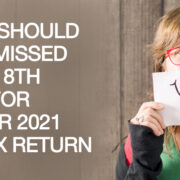Tax Planning For Businesses – What You Need To Know About Business Meals, Business Travel, And Advertising And Marketing Costs
Tax Planning For Businesses – What You Need To Know About Business Meals, Business Travel, And Advertising And Marketing Costs
Under prior law, a taxpayer generally can deduct business-related meal and entertainment expenses paid or incurred in entertaining a client, customer, or employee. The taxpayer had to show that the item was directly related to (or, in certain cases, associated with) the active conduct of the taxpayer’s trade or business. In such case, a deduction is allowed, although it is generally limited to 50% of the expense amount.
Starting with 2018 more stringent rules apply with respect to a deduction for meal and entertainment expenses paid after 2017. The Tax Cuts And Jobs Act Of 2017 (“TCJA”) TCJA signed into law by President Trump on December 22, 2017, repeals the deduction for most entertainment expenses, effective for amounts incurred after 2017. There was no exception for amount incurred that are directly related to, or associated with, the active conduct of the taxpayer’s trade or business. This repeal would extend to the cost of tickets to sporting events, stadium license fees, private boxes at sporting events, theater tickets, golf club dues, etc.
However, it is still possible that some amounts may still be deductible if they meet the exceptions in IRC § 274(e), a provision that was not touched by the TCJA.
Business Meals
The main exceptions in IRC § 274(e) allowing deductibility are:
- Expenses for food and beverages (and facilities used in connection therewith) furnished on the business premises of the taxpayer primarily for the taxpayer’s employees.
- Expenses for recreational, social, or similar activities (and facilities used in connection therewith) primarily for the benefit of employees, other than highly-compensated employees.
- Expenses incurred by a taxpayer which are directly related to business meetings of the taxpayer’s employees, stockholders, agents, or directors.
- Expenses directly related and necessary to attendance at a business meeting or convention of any certain organizations such as business leagues, chambers of commerce, real estate boards, and boards of trade.
- Expenses for goods, services and facilities made available by the taxpayer to the general public.
This lack of clarity by the TCJA created a lot of confusion in the business community which the IRS was looking to address. On October 3, 2018 the IRS issued guidance, Notice 2018-76, clarifying that taxpayers may generally continue to deduct 50% of the food and beverage expenses associated with operating their trade or business, despite changes to the meal and entertainment expense deduction by the TCJA. Taxpayers can rely on the guidance in the notice until the IRS issues proposed regulations.
Under the interim guidance, taxpayers may deduct 50% of an otherwise allowable business meal expense if:
- The expense is an ordinary and necessary business expense under IRC § 162(a) paid or incurred during the tax year when carrying on any trade or business;
- The expense is not lavish or extravagant under the circumstances;
- The taxpayer, or an employee of the taxpayer, is present when the food or beverages are furnished;
- The food and beverages are provided to a current or potential business customer, client, consultant, or similar business contact; and
- For food and beverages provided during or at an entertainment activity, they are purchased separately from the entertainment, or the cost of the food and beverages is stated separately from the cost of the entertainment on one or more bills, invoices, or receipts.
The interim guidance includes three examples illustrating how the IRS would apply these rules. All three examples involve attending a sporting event with a business client and having food and drink while attending the event.
Business Travel
Business travel deductions are available when employees must travel away from their tax home or main place of work for business reasons. A taxpayer is traveling away from home if they are away for longer than an ordinary day’s work and they need to sleep to meet the demands of their work while away.
Travel expenses must be ordinary and necessary. They can’t be lavish, extravagant or for personal purposes.
Employers can deduct travel expenses paid or incurred during a temporary work assignment if the assignment length does not exceed one year.
Travel expenses for conventions are deductible if attendance benefits the business.
Deductible travel expenses include:
- Travel by airplane, train, bus or car between your home and your business destination.
- Fares for taxis or other types of transportation between an airport or train station and a hotel, or from a hotel to a work location.
- Shipping of baggage and sample or display material between regular and temporary work locations.
- Using a personally owned car for business.
- Lodging and meals.
- Dry cleaning and laundry.
- Business calls and communication.
- Tips paid for services related to any of these expenses.
- Other similar ordinary and necessary expenses related to the business travel.
Advertising And Marketing Costs
The tax law allows businesses to deduct expenses that help them bring in new customers and keep existing ones. These costs may include expenses for advertising and marketing. Here are some details about this valuable tax deduction that can help small businesses save money on their taxes.
Advertising and marketing costs must be ordinary and necessary to be tax deductible.
- An ordinary expense is one that is common and accepted in the industry.
- A necessary expense is one that is helpful and appropriate for the trade or business. An expense does not have to be indispensable to be considered necessary.
Here are a few advertising expenses that are usually deductible:
- Reasonable advertising expenses that are directly related to the business activities.
- An expense for the cost of institutional or goodwill advertising to keep the business name before the public if it relates to a reasonable expectation to gain business in the future. For example, the cost of advertising that encourages people to contribute to the Red Cross or to participate in similar causes is usually deductible.
- The cost of providing meals, entertainment, or recreational facilities to the public as a means of advertising or promoting goodwill in the community.
Generally, small businesses cannot deduct amounts they pay to influence legislation, which includes advertising in a convention program of a political party, or in any other publication if any of the proceeds from the publication are for, or intended for, the use of a political party or candidate.
What Should You Do?
Like with any expense you are looking to deduct it is important to make sure that the tax law would support a deduction and that you have the required backup documentation in case you are audited by the IRS. Also, be mindful that in any audit by IRS, an agent will be making sure that taxpayers are not inflating the amount charged for food and beverages in order to circumvent the disallowance of entertainment.
You know that at the Law Offices Of Jeffrey B. Kahn, P.C. we are always thinking of ways that our clients can save on taxes. If you are selected for an audit, stand up to the IRS by getting representation. Tax problems are usually a serious matter and must be handled appropriately so it’s important to that you’ve hired the best lawyer for your particular situation. The tax attorneys at the Law Offices Of Jeffrey B. Kahn, P.C. located in Orange County (Irvine), San Francisco Bay Area (including San Jose and Walnut Creek) and elsewhere in California are highly skilled in handling tax matters and can effectively represent at all levels with the IRS and State Tax Agencies including criminal tax investigations and attempted prosecutions, undisclosed foreign bank accounts and other foreign assets, and unreported foreign income. Additionally, if you are involved in the cannabis industry, check out Cannabis Tax Attorney. Also, if you are involved in crypto currency, check out what a Bitcoin tax attorney can do for you.











 Follow
Follow Follow
Follow